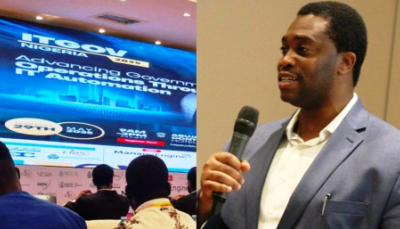Drive for eGovernance in Edo State
Oil rich Edo State appears keen to reconfigure its economic growth on ICT. In Benin City, its state capital, the mantra among government functionaries is ‘eGovernance is the future.’ Edo State has automated the processes of governance in the state including procurements, budgeting, the entire financial spectrum that determines public sector expenditures and other key elements upon which governance is fostered.
It recently launched Open Data Portal to encourage the citizenry to participate in governance. About three years ago, it launched the Edo State Citizens Identification Card to address the dearth of reliable data on the citizenry and ultimately improve government’s capacity to effectively plan for the welfare of the people. Dearth of reliable data has consistently weakened the ability of those in government to have short to long term planning for infrastructural and economic developments that will benefit the citizenry. What the state has sought to do in the last few years is to deploy eGovernance – to steadily increase the quantum of ICT in delivering government services, in the exchange of information communication transactions, in the integration of various stand-alone systems and services between Government-to-Citizens (G2C), Government-to-Business(G2B), and Government-to-Government( G2G).
Not all of these have been achieved. But there are appreciable landmarks that have helped to reduce corruption in public service, end the era of ghost workers, allow effective payment of taxes (through eTaxation) and provide a more effective budgetary planning that reduces waste or exaggerated contractual values. For Edo State, life is getting to have more value with ICT. It behoves on the government to sustain this drive.
Edo Technology Day positions Edo State as an ICT hub
What is the relevance of Edo Technology Day?
The objective of Edo Technology Day is to create awareness first and foremost about the technology sector in Edo State and give a platform for all stakeholders including policy makers, investors, vendors, inventors, etc, to have a place to network and showcase their products and services, as well have a place to discuss issues that bother around the sector. We realised that the government is doing something by creating the ministry of communication technology, which means they recognised that technology is the future. For us in Edo State, we have institutionalized ICT by making it bound by law and turning it into an agency.
What informed this year’s theme?
The theme fostering governance through technology is to show that as a government we are using technology to foster governance. This year, we decided to expand the scope and bring other states because we realised that other states too are doing something in technology in the country and people don’t know about it. A lot of us are repeating the same initiatives, so we created an avenue to bring them together using the platform of Edo Technology Day to see whether we can learn, leverage on their successes and collaborate with them.
Impacting ICT knowledge & e-governance
How does your agency intervene in impacting ICT knowledge on primary and secondary pupils?
We are piloting ICT knowledge diffusion in certain schools now. For instance, in Edo College, we have started sending ICT teachers there that can teach the curriculum not only to the students but also to the teachers. We are doing train the trainers for the ICT teachers, as well as carrying the students along. Thereafter, we will calculate the impact of it to see how well it has done, what lesson learnt and what we want to do for the next step. In terms of development of the youth, one of the things we are doing is we are partnering with Cisco. We have been able to get some amount of courses. The courses are subsidised. We are encouraging our people to come and take this Cisco training, so that they can have a professional certification in Cisco training. With this we are building vital skills in our youths and of course it has economic impact so to speak.
Is there e-governance in Edo State?
Of course there is e-governance. We have automated the processes of governance in the state, the procurement, the budgeting, the financials and the rest. We are very proud as a state that we are using technology to aid governance. We have done our biometric projects to identify who is in the public sector is and we are also taking that into the private sector.
Tell us more about the Open Data Portal?
We have launched the Open Data to encourage the citizenry to participate in governance. We are giving them information on the portal which they can use to analyze and measure us as a government. Some civil societies have put their information online for people globally to see.
No bandwidth in Edo
One of the key areas of this conference is data usage but there is still no bandwidth in Edo State, how are you tackling this challenge?
We are managing ourselves as best as we can that is why we decided to have a discussion session with the law makers, users and the providers of broadband. Yesterday’s session gives you an insight into the challenges we have and those that are proffering solutions to it we also discussed with them. In Edo State, we are taking it a little step at a time. We use various vendors so that when one goes down we use the other.





























